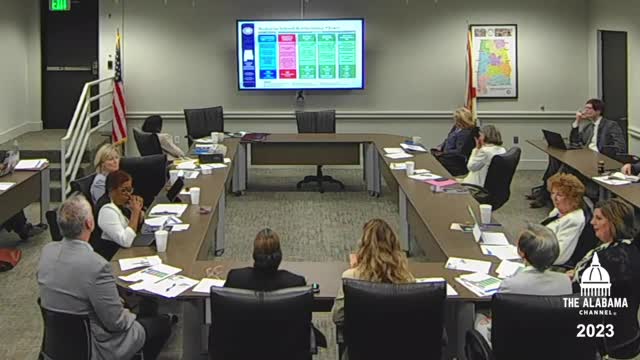Alabama Education Leaders Outline Turnaround Initiative for 15 Struggling Schools
August 09, 2025 | Alabama State Department of Education, State Agencies, Executive, Alabama
Thanks to Scribe from Workplace AI , all articles about Alabama are free for you to enjoy throughout 2025!

This article was created by AI using a video recording of the meeting. It summarizes the key points discussed, but for full details and context, please refer to the video of the full meeting. Link to Full Meeting
During the meeting, it was revealed that the state has identified 50 schools as CSI, which are among the lowest 5% in Alabama. These schools are evaluated every three years based on multiple indicators, including graduation rates, chronic absenteeism, and academic growth, rather than solely on standardized test scores. This comprehensive approach aims to ensure that schools receive the necessary support to improve their performance.
A key initiative discussed was the Governor's Turnaround Schools program, which currently involves 15 schools. This initiative allocates $10 million in funding, with $5 million specifically designated for auxiliary teachers. The program emphasizes collaboration among various agencies, including mental health services and community organizations, to address the holistic needs of students.
The meeting also touched on the Literacy Act, which focuses on reading proficiency in the lowest-performing schools, and the Numeracy Act, aimed at enhancing math skills. Officials expressed excitement about the potential impact of these initiatives, noting that they are designed to create a supportive environment for both students and educators.
As part of the ongoing efforts, the Alabama State Department of Education is committed to regular monitoring and evaluation of the schools' progress. This includes weekly visits to ensure that the support provided is effective and aligned with the schools' improvement plans. The department is also working on developing a comprehensive turnaround model that can be replicated across the state.
In conclusion, the Alabama Board of Education's work session underscored a proactive and collaborative approach to improving educational outcomes for the state's most vulnerable schools. With a focus on data-driven strategies and community involvement, officials are optimistic about the future of these initiatives and their potential to foster significant improvements in student achievement.
Converted from Alabama Board of Education Work Session meeting on August 09, 2025
Link to Full Meeting
Comments
View full meeting
This article is based on a recent meeting—watch the full video and explore the complete transcript for deeper insights into the discussion.
View full meeting
